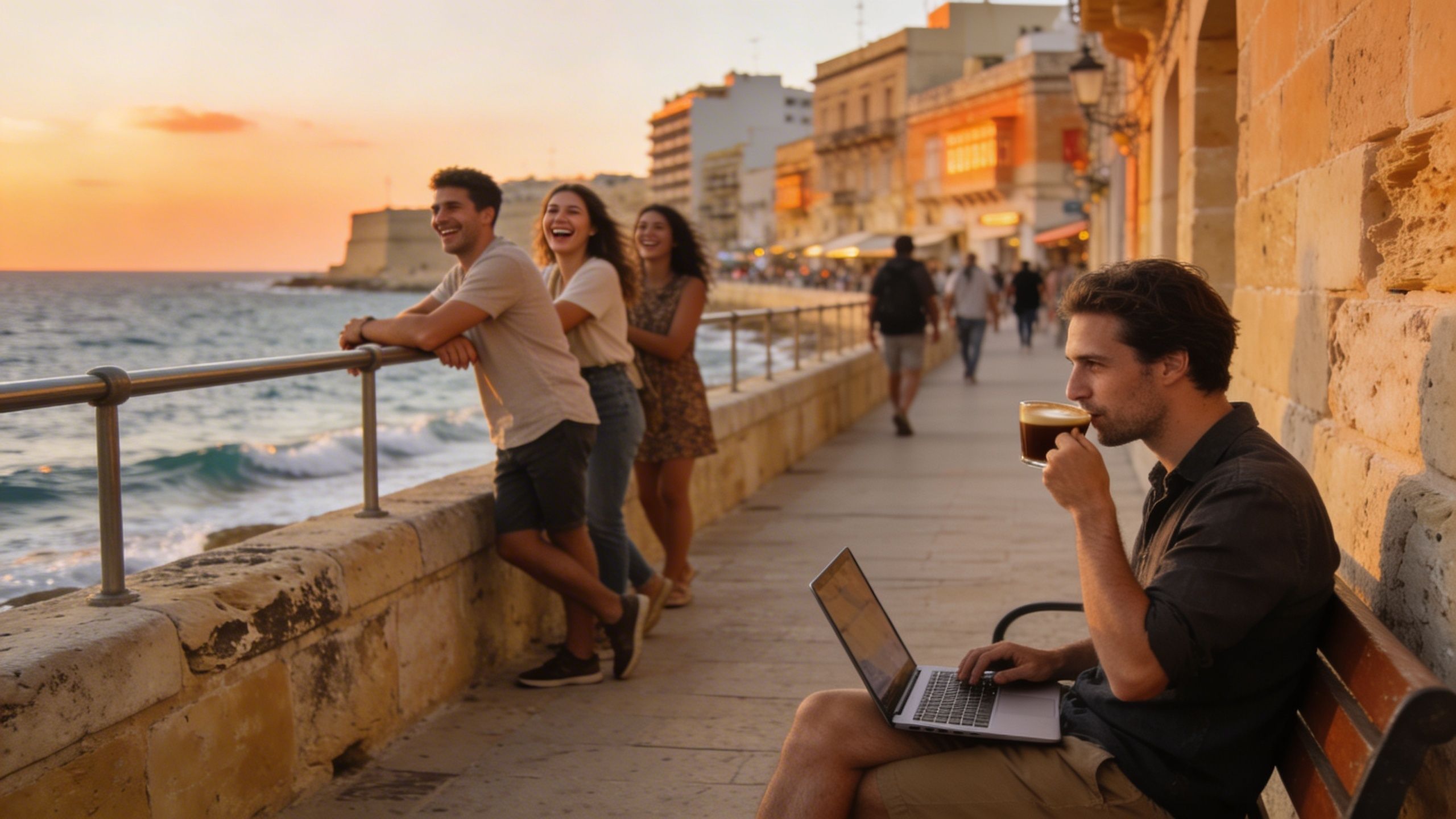Make an Offer in Croatia That Matches Everyday Life
Choose a Croatian home that fits daily life, not just the view: use seasonal visits, connectivity checks, local sales data and legal clearance to craft winning offers and close smoothly.
Imagine sipping espresso on Split’s Riva at dawn, then closing a midday client call from a sunlit apartment on Varoš. Croatia moves slowly and brightly — stone streets, island hops, weekend markets — yet its property market is sprinting. For nomads dreaming of a life here, the final steps — the offer, the negotiation, the not-quite-glamorous closing — decide whether that dream stays dreamy or becomes home.
Living the Croatia lifestyle

Day-to-day life in Croatia blends Mediterranean leisure with a practical local rhythm. Picture morning markets (Dolac in Zagreb, Pazar in Split), late-afternoon promenades along pebble beaches (Bacvice, Zlatni Rat), and evenings at konobas tasting grilled fish and local pošip. Streets smell of espresso and pine; neighbours greet each other with easy familiarity. This atmosphere shapes what you’ll actually want in a property: outdoor terraces, easy storage for an SUP or bike, reliable internet, and a neighbourhood with rhythm — not just a view.
Zagreb’s lively corners and Split’s cliffside calm
In Zagreb, Tkalčićeva and the Upper Town hum with cafés, coworking nights and a compact walkable grid. You get year-round services and faster bureaucratic help. On the coast, Split’s Varoš and the Riva are all texture — narrow lanes, sunset aperitifs, and ferry links to the islands. Living in each feels different: Zagreb is café-culture efficient; Split is seaside improvisation. Both demand property choices that match how you work and play.
Food, festivals and the weekend rhythm
Weekends are for markets, island day-trips and local festivals — from truffle hunts in Istria to summer concerts on Hvar. That seasonal life matters: if you want year-round calm, avoid main promenade apartments that become tourist rentals in July. If you want buzz, pick a small street behind the promenade where locals live and where cafes wake you gently, not chaotically.
- Local lifestyle highlights: Dolac market (Zagreb); Bacvice beach (Split) for morning swims; Varoš neighbourhood (Split) for sunset views; Hvar’s Pakleni islands for weekend sail days; Rovinj’s cobbled streets and craft food scene; local konobas serving pošip and black risotto.
Making the move: practical considerations

Croatia’s property market has been heating up — national price indices rose double digits year-on-year in 2025, with coastal hotspots outperforming inland towns. That matters when you make an offer: what looked like a bargain last winter may have moved. Also factor in policy changes — recent tax proposals and short-term rental rules can affect returns and local sentiment. Bring data to the table, not just passion.
Property styles that match nomad life
Stone apartments in Dalmatia give you character and cool summers, but watch for thin walls and older wiring. New-builds in Zagreb or Istria offer better insulation and fast fiber, but less soul. If you work remotely, prioritise a bright room for a desk, a quiet street (not a ground-floor tourist bar) and a terrace for breaks. Renovation-ready projects can be lower-cost entry points — but budget realistically for contractor timelines and materials.
Work with local experts who know lifestyle + law
A local agency that understands neighbourhood rhythms and legal quirks is priceless. They’ll spot when a coastal unit is essentially a short-term rental machine or when a Zagori street has quiet-year-round residents. They also help check connectivity: urban Croatia generally gives solid broadband (Zagreb and Split deliver strong speeds), but rural islands can range widely. Use agencies for lifestyle matching plus a lawyer for title & permissions.
- Offer & closing steps for lifestyle-focused buyers: 1) Visit in-season and off-season to feel the neighbourhood’s rhythm. 2) Ask your agent for comparable sales plus short-term rental activity data. 3) Make an offer with a realistic deposit and clear timeline — Croatian sellers often value certainty and speed. 4) Commission a local lawyer for title checks, land registry extracts and permission searches. 5) Prepare for closing costs and any upcoming municipal tax changes; negotiate who pays what in the contract. 6) Plan practical move-in (internet activation, utility transfers, local bank account).
Insider knowledge: what expats wish they’d known
Real talk from other buyers: the ‘sea-view’ premium can be a trap if the apartment is on a busy promenade that loses its charm in peak season. Many wish they’d prioritized a quieter street two blocks back with the same sunset and better privacy. Others regretted skipping a fiber check — a charming stone flat without modern cabling can make remote work frustrating until you rewire.
Cultural quirks that change how you buy
Croatians value personal relationships: a clear, respectful negotiation goes farther than aggressive lowballing. Public holidays slow processes (expect delays around August and Easter). For non-EU buyers, property purchase often needs approval from the Ministry or reciprocity rules; EU citizens face fewer hurdles. Always confirm the purchase permissions early — it’s a potential deal-breaker if overlooked.
Long-term lifestyle & investment trade-offs
Think beyond today’s Instagram shot. If you want steady rental income, choose areas with year-round demand (Zagreb, university towns, or ports with ferry links). If you crave slow summers and island life, accept seasonal rental cycles and plan for months of quieter revenue. Recent indexes show strong national price growth — that’s good for capital gains but means tighter bargaining room.
Conclusion: make the offer that fits the life you want — not only the view. Visit the neighbourhood at different times, demand data on comparable sales and tourist rental activity, check connectivity, and hire a lawyer who reads Croatian registers fluently. An agent who knows where locals buy (not just the postcard spots) will help you place a confident offer and close cleanly — so you can stop dreaming and start living that espresso-to-sunset routine.
Dutch investment strategist guiding buyers to Greece and Spain; practical financing, tax, and portfolio diversification.


